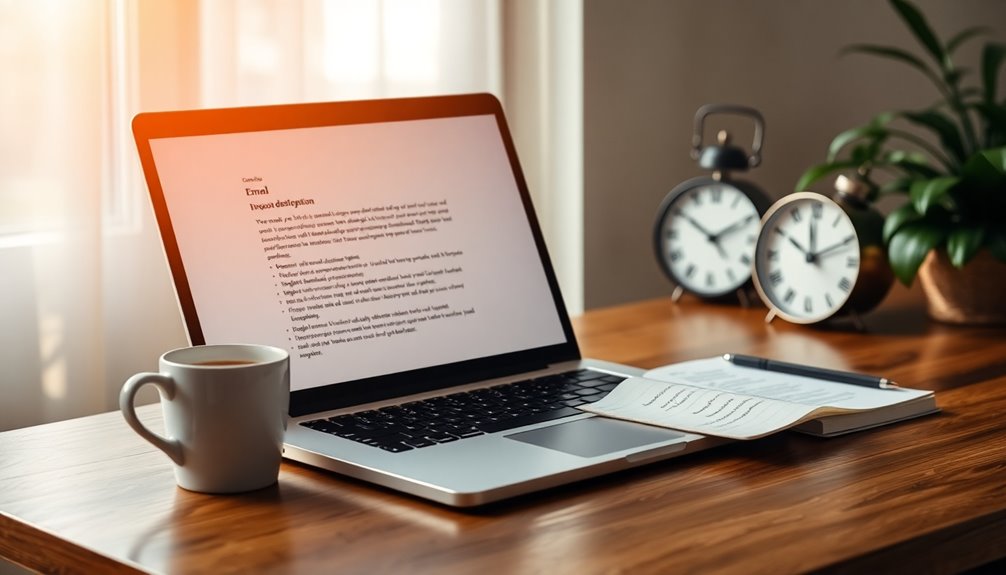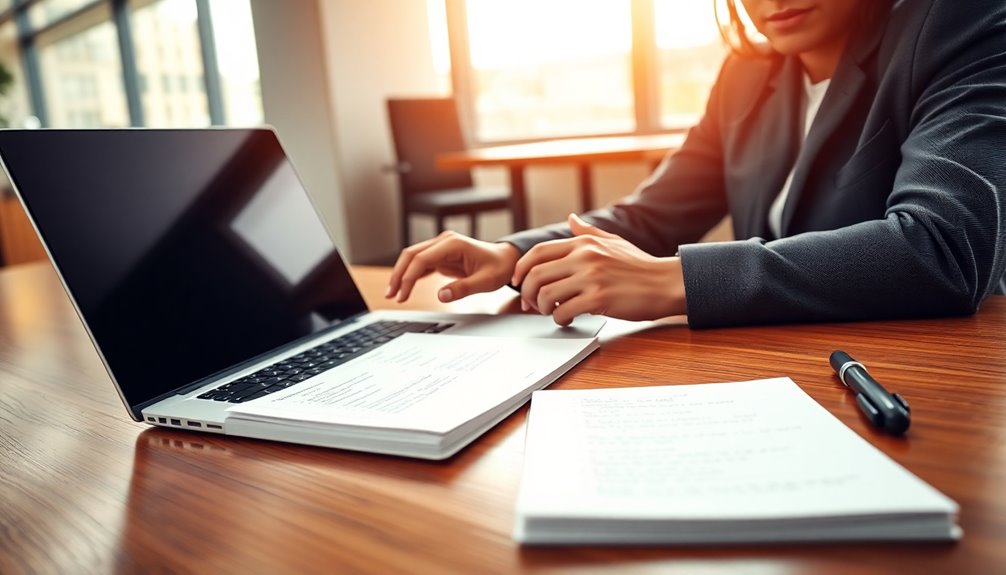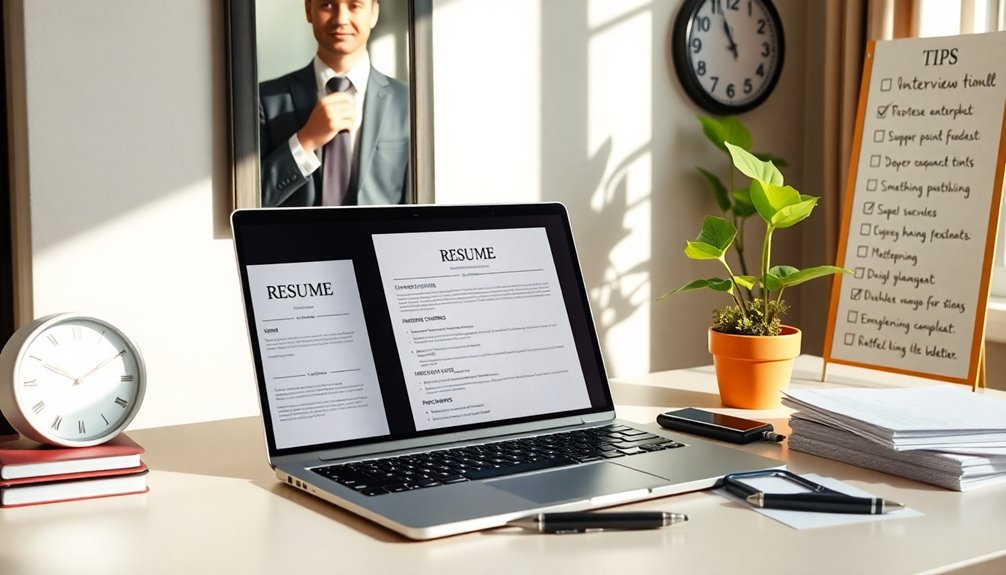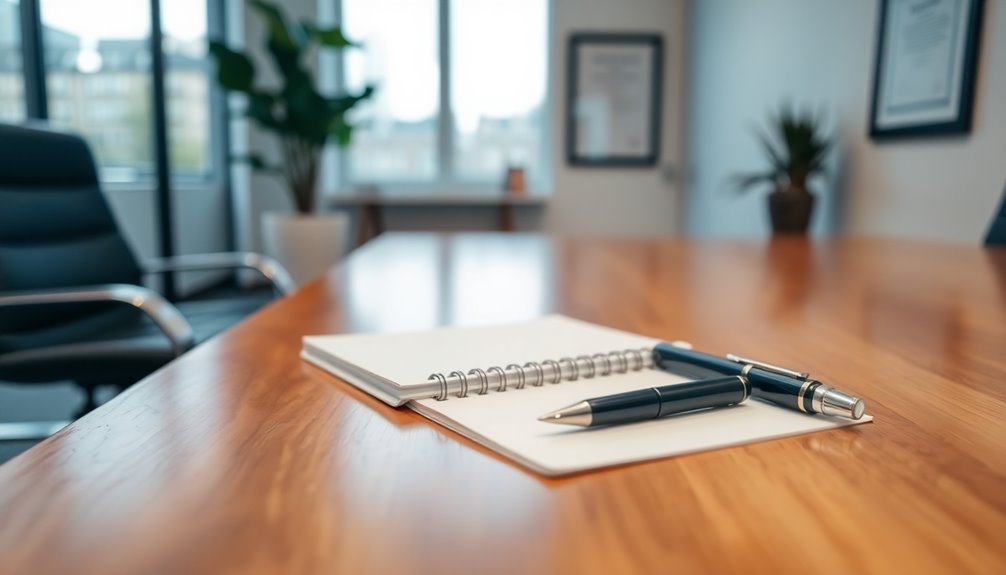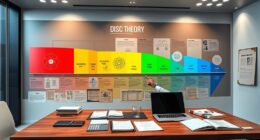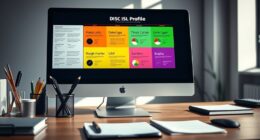To get a faster interview response, send a follow-up email within 24-48 hours of your interview. Start with a clear subject line like "Thank You for the Interview." Express your gratitude immediately and reference specific topics discussed. This shows your enthusiasm and helps you stand out, as only 24% of candidates do this. Maintain a professional tone and keep it concise—aim for five sentences. Politely ask for updates on the hiring process. This proactive approach can enhance your chances, and if you keep going, you'll discover useful tips to craft the perfect email.
Key Takeaways
- Send a thank you email within 24-48 hours to demonstrate enthusiasm and professionalism after your interview.
- Use a clear subject line like "Thank You for the Interview" to ensure immediate recognition.
- Reference specific topics discussed during the interview to reinforce your engagement and memory retention.
- Politely inquire about the next steps in the hiring process to encourage ongoing communication without being pushy.
- Keep your email concise, limiting it to five sentences to respect the recipient's time and maintain professionalism.
Importance of Follow-Up Emails
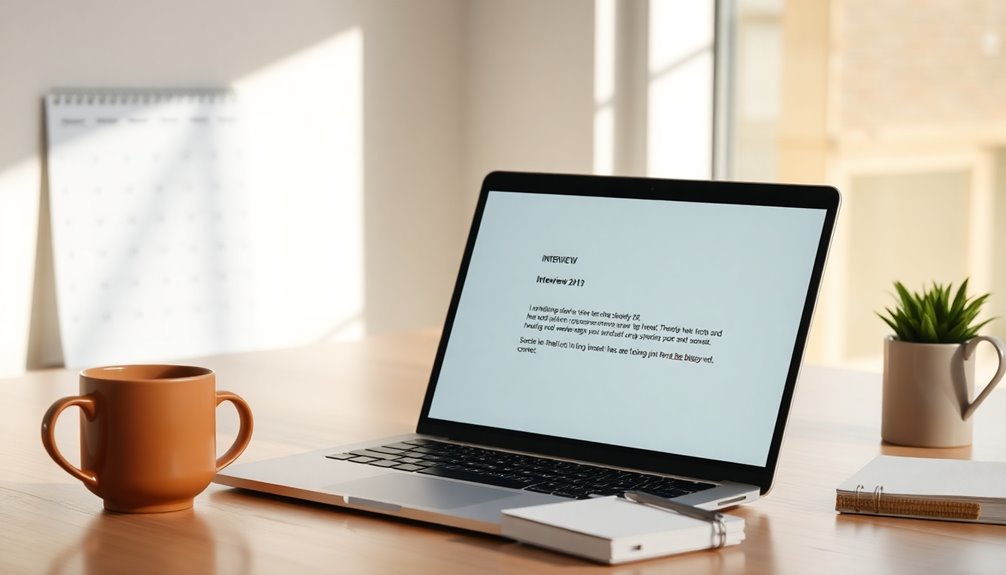
In the competitive landscape of job hunting, a follow-up email can be your secret weapon. Many job seekers overlook this vital step, missing out on the chance to enhance their professional image. A simple thank you email sent within 24-48 hours demonstrates your enthusiasm and respect for the interviewer's time. This small gesture can meaningfully influence hiring decisions in your favor.
Research shows that 80% of hiring managers find thank you notes helpful in their candidate evaluations. By sending a follow-up email, you not only express your continued interest in the position but also remind them of your qualifications. In competitive job markets, where many applicants vie for the same role, silence might be interpreted as disinterest.
Moreover, only 24% of candidates send thank you emails, so by taking this step, you're setting yourself apart from the crowd. A well-crafted follow-up email keeps you top-of-mind for recruiters and reinforces your commitment to the opportunity. Don't underestimate the power of a follow-up—it's more than just a courtesy; it's a strategic move that can tip the scales in your favor.
Timing Your Follow-Up

Timing your follow-up email is essential for making a lasting impression. You should aim to send it within 24-48 hours after your interview to show enthusiasm and keep your candidacy fresh in their minds. Remember, a prompt response also signals professionalism, so don't let too much time pass before reaching out.
Ideal Follow-Up Timing
Sending a follow-up email within 24-48 hours after your interview is essential for reinforcing your interest in the position. This timing takes advantage of the recency effect, helping the interviewer remember you better. A quick follow-up shows enthusiasm and proactivity, but be careful not to rush. Sending your thank-you email too immediately might come off as overly enthusiastic. Allowing a brief moment for reflection can improve the quality of your message.
Consider the company culture when deciding your timing. If the organization values prompt communication, a follow-up on the earlier side may be appropriate. Conversely, if they seem more laid-back, waiting a bit could align better with their style. In your follow-up email, you can also share any additional information or insights that could strengthen your candidacy.
Importance of Promptness
Promptness in your follow-up can make all the difference in how you're perceived by potential employers. Sending a follow-up email within 24-48 hours after your interview is essential. It keeps you top-of-mind for hiring managers and demonstrates your enthusiasm for the position. By taking this initiative, you show that you're not just waiting passively; you're actively engaged in the process.
A well-timed thank you note can greatly influence their hiring decisions. The recency effect suggests that information shared shortly after an event is more likely to be remembered. This means your promptness in sending a follow-up could enhance your overall candidacy. Delaying your follow-up communication might lead to perceptions of disinterest, which can be detrimental.
When you send a follow-up, you're not only reinforcing your interest but also positioning yourself as a proactive candidate. Research indicates that candidates who send timely follow-ups are viewed as more professional, enhancing their appeal. So, whether it's a post-interview follow-up or a simple thank you note, make sure you act quickly. Your promptness will leave a lasting impression on the hiring manager and could be the key to securing that job offer.
Structuring Your Email

When structuring your email, focus on key components that make your message clear and effective. Start with an impactful subject line and express your gratitude right away to maintain a professional tone. Keeping your email concise will show respect for the recipient's time and boost your chances of a quick response.
Key Email Components
Crafting a well-structured interview response email is essential for making a positive impression. Start your follow-up email with a clear and concise subject line like "Follow-Up on Interview" or "Thank You for the Opportunity." This guarantees immediate recognition. Use a professional greeting that addresses the recipient by name to set a respectful tone.
In the body of your thank-you note, focus on expressing gratitude and reiterating your excitement about the opportunity. Mention specific topics discussed during the job interview to engage the reader and remind them of your fit for the role. If you have additional qualifications or insights, clearly state them to reinforce your candidacy.
Keep it short and to the point. Conclude your email with a polite request for an update on the hiring process. This shows that you're proactive and genuinely interested. Don't forget to include your contact information, making it easy for the interviewer to reach out.
Effective Subject Lines
Choosing the right subject line can greatly impact how your interview response email is received. You want your subject line to be clear and relevant, like "Thank You for the Interview" or "Follow-Up on [Job Title]." These phrases guarantee immediate recognition by the recipient and convey the purpose of your email right away.
Using "Re:" can also be a smart move if you're responding to an existing email thread; it may increase the chances of your email being noticed. Avoid vague or overly complex subject lines, as they can lead to confusion and may cause your email to be overlooked.
Personalizing your subject line by referencing specific details from the interview can enhance engagement and show attentiveness. For example, "Checking in on Interview Status for [Job Title]" clearly conveys your intent and helps set the right expectations.
Maintaining Professional Tone
Maintaining professionalism in your interview response email is essential for making a positive impression. A professional tone enhances your credibility and shows respect for the recipient's time, increasing the chances of a prompt response. When you need to send follow-up emails after an interview, keep your language clear and concise; limit your message to five sentences or less. Additionally, ensure that you remain mindful of the emotional impact of the interview process on yourself and the recipient.
Here's a simple structure you can follow:
| Greeting | Body | Closing |
|---|---|---|
| Dear [Name], | I hope this message finds you well. I wanted to follow up regarding my interview on [date]. Please let me know if there are any updates. | I look forward to hearing from you. Best regards, [Your Name] |
Address the recipient by name to establish a personal connection while maintaining that professional tone. Avoid casual language, as it reflects your seriousness about the position. Finally, always proofread your email for any grammatical or spelling errors, as mistakes can undermine your professionalism.
Essential Email Components
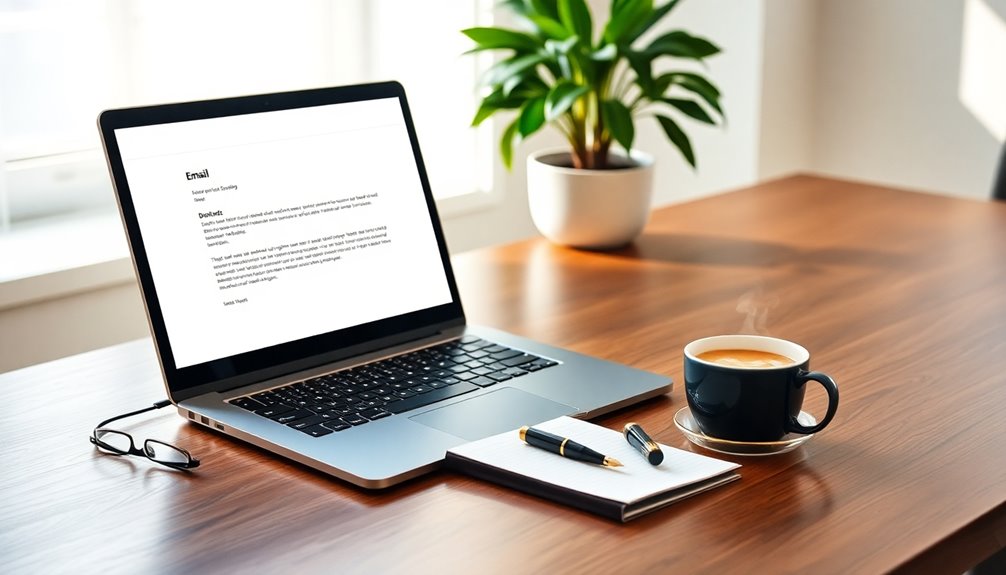
When you follow up on an interview, incorporating essential email components can make a significant difference in how your message is received. Start with a clear subject line like "Follow-Up on Interview." This helps guarantee your email stands out and gets prioritized.
Begin your follow-up email with a professional greeting and take a moment to thank the interviewer for the opportunity. This sets a positive tone right from the start. In the body, be concise and reiterate your interest in the position. Briefly highlight your relevant qualifications that were discussed during the interview to remind them of your fit for the role.
Don't forget to include a direct inquiry about the next steps in the hiring process. This shows your enthusiasm and engagement without coming off as pushy.
Finally, wrap up your email with a friendly sign-off. Make sure your contact information is easily accessible, so they can respond promptly. By focusing on these essential components, you'll craft a follow-up email that not only stands out but also fosters a continued conversation about your future with the company.
Templates for Follow-Up Emails
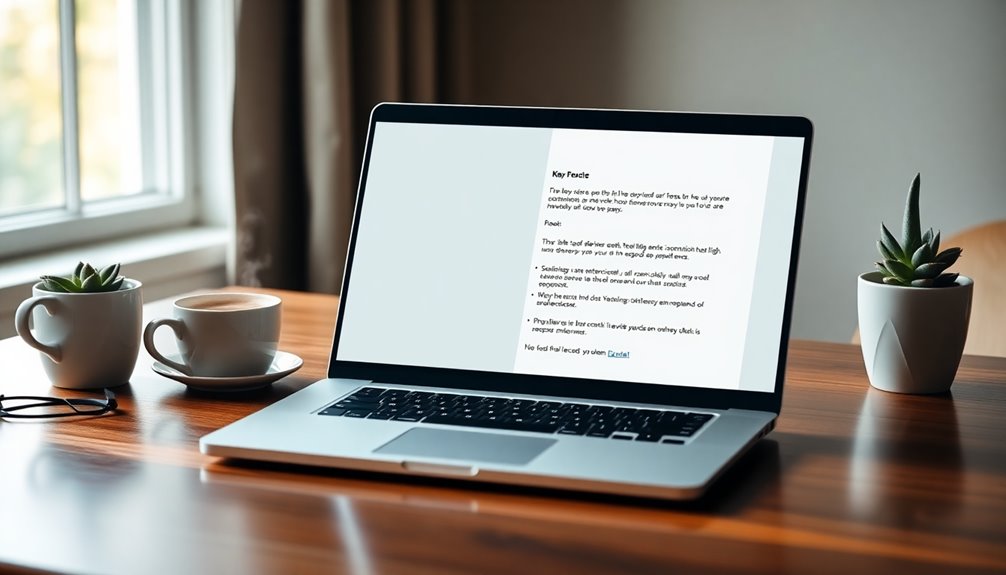
Crafting a follow-up email template can streamline your communication after an interview and guarantee you hit all the right notes. You need to send a thank you email within 24-48 hours to maintain engagement and show your enthusiasm for the job.
For a short interview, keep it concise: "Thank you for the interview! I'm still interested in the [Job Title] position and believe my skills align well with your team's needs." This type of email after the interview makes it easy for the interviewer to remember you.
If the interview was longer, add more detail: "I appreciate the time you took to discuss the [Job Title] role. I'm still interested, especially after hearing about [specific project or topic]. My experience with [relevant qualification] can contribute to your team's success."
Use clear subject lines like "Thank you for the interview" or "Checking in RE: [Job Title]" to enhance visibility. Personalizing your email by referencing specific topics discussed not only shows your attentiveness but also helps you stand out in the hiring process.
Common Mistakes to Avoid
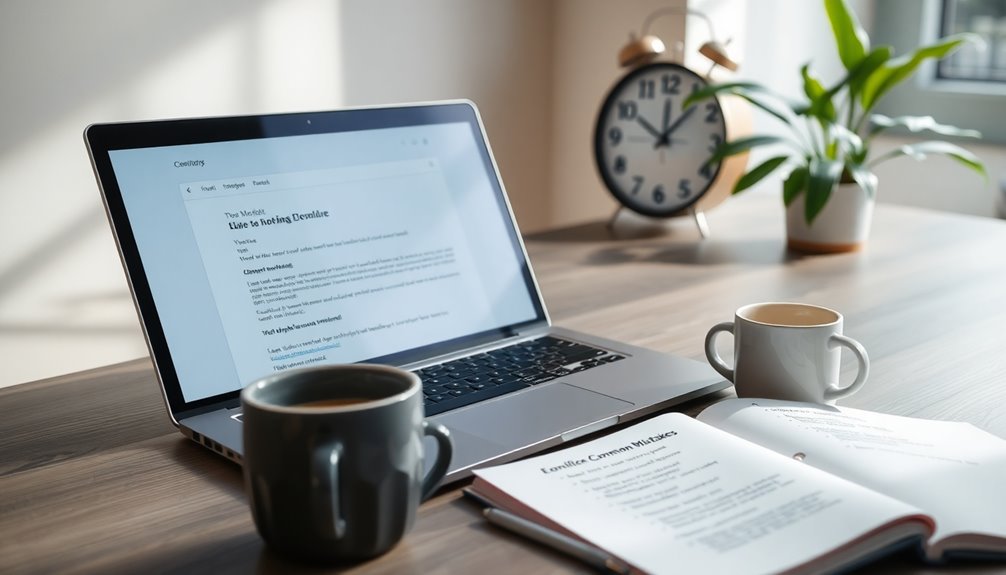
After an interview, sending a follow-up email is vital, but there are common pitfalls that can undermine your efforts. First, timing is significant. If you wait too long to send one, your enthusiasm may wane, and the interviewer might forget specific points from your discussion. Timely communication showcases your professionalism and keenness for the position.
Next, keep your follow-up emails concise. Overloading them with excessive information can overwhelm the recipient, leading to your message being ignored. Stick to the key points you discussed during the interview, mentioning how you enjoyed our conversation and referring to specific points that highlight your fit for the role.
Another mistake is neglecting to proofread your email. Spelling and grammatical errors can damage your credibility and suggest a lack of attention to detail. Always confirm your language remains formal and appropriate; using informal language can create a negative impression.
Lastly, avoid generic follow-ups that fail to reinforce your connection with the interviewer. Personalizing your email can leave a lasting impact, making it clear that you value the time spent discussing the position.
Final Tips for Effective Follow-Ups

A timely follow-up email can make all the difference in your job search. Sending your follow-up within 24 hours of the interview shows enthusiasm and professionalism. Start your email by thanking the interviewer for their time, and express your pleasure speaking about the role. Personalizing your message by referencing specific topics discussed can make your email more memorable.
Use a clear and concise email template to convey your gratitude and reaffirm your interest in the position. Keep it brief; hiring managers appreciate straightforward communication. Don't forget to politely inquire about the next steps in the hiring process. This proactive approach encourages recruiters to provide updates without coming off as overly aggressive.
If you don't receive a timely interview response, it's acceptable to follow up again. However, maintain a professional tone, and avoid excessive follow-ups that might be perceived as impatience. Aim for a balanced approach. If you have any questions or need further clarification, feel free to contact the recruiter. A well-crafted follow-up can enhance your chances of landing that job you desire.
Frequently Asked Questions
How Do You Politely Ask to Expedite an Interview Process?
To politely ask to expedite an interview process, express your enthusiasm for the position in your follow-up communication. You can mention any upcoming commitments that might influence your timeline. Keep your message brief and focused, acknowledging the effort involved in hiring while respectfully requesting an update on the timeline. Use a clear subject line like "Following Up on Interview Process" to guarantee your email stands out and gets noticed promptly.
How Do You Politely Ask for Interview Results?
When you want to ask for interview results, start with a friendly greeting and thank the interviewer for the opportunity. Politely mention the timeline you discussed during your interview, showing you're aware of their process. Keep your message brief and express your ongoing interest in the role. Close with a respectful thank you and include your contact information to make it easy for them to respond. This approach keeps it professional and courteous.
How Do You Email When You Haven't Heard Back From an Interview?
When you haven't heard back from an interview, it's a good idea to send a follow-up email after 1-2 weeks. Start with a clear subject line, like "Checking in RE: [Job Title]." In your message, express your excitement for the role and mention specific topics from your interview. Keep it polite and professional, and offer to provide any additional information if needed. This shows your continued interest without coming off as impatient.
How Do You Politely Follow up a Second Time?
Have you ever felt anxious waiting to hear back about a job? When you follow up a second time, wait 5-7 business days after your first email. Start with a quick recap of your previous message and express your ongoing interest in the position. Keep it short, ideally one paragraph, and thank them for their time. A polite tone goes a long way, especially if they're busy with other responsibilities.
Conclusion
Don't worry if you think a follow-up email might come off as pushy; it's actually a sign of your enthusiasm and professionalism. By sending a well-timed, structured email, you show genuine interest in the role and respect for the interviewer's time. Remember, hiring managers appreciate proactive candidates. So go ahead, use the templates and tips provided to craft your follow-up—you're not just reminding them of you, you're reinforcing your fit for the position!
Felicity, our Author, pens in-depth articles and guides that delve into the heart of personal discovery. Her narrative-driven approach weaves together theory, practice, and personal anecdotes, making the journey of self-exploration both relatable and inspiring. Felicity’s contributions help illuminate the path for those seeking a deeper understanding of themselves and their relationships.
